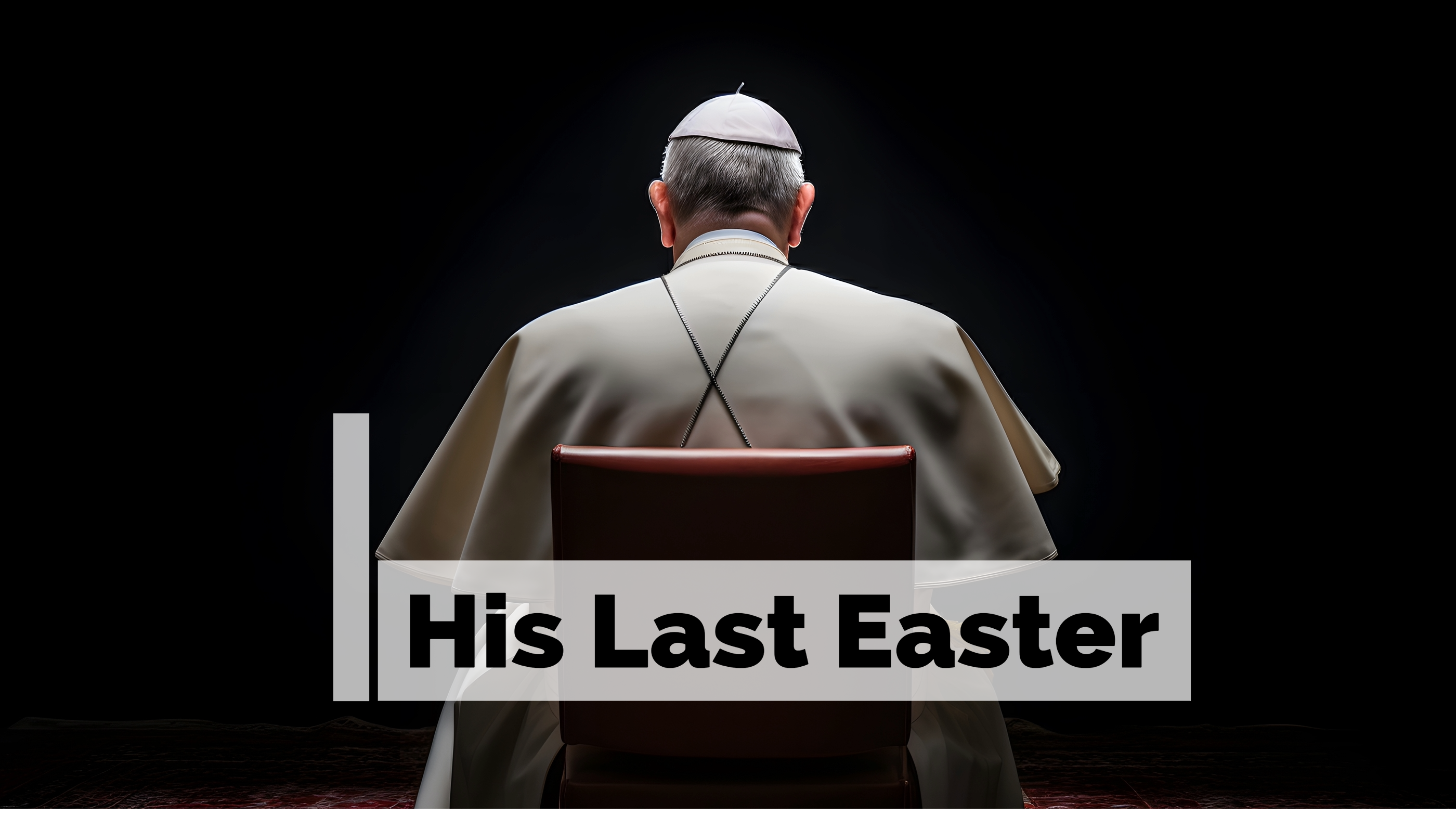
**While this post doesn't engage or address the theological and ecclesiological differences between Catholicism and Protestantism, this post does not intend to sweep those differences under the rug. We recognize they are material and significant, and that differing interpretations of scripture and Christian tradition are important.**
Pope Francis (Jorge Mario Bergoglio) died on April 21st, 2025, and while all Popes make history by virtue of their office, Pope Francis will be remembered for many different reasons. He was the first Pope from the Western Hemisphere (the Americas), and as such a representative of Latin America. He was the first Pope to take the name Francis, the saint of “poverty and peace”, and he was also the first Jesuit Pope.
His time as the Pope has been significant. Pope Francis’s influence over people has even been scientifically studied, such as in this article from Cambridge University Press in which researchers Rccardo Ladini and Lucia Faggiana surveyed the Italian public about whether or not “the papal endorsement of an anti-poverty measure during the COVID-19 pandemic affected people’s support for it”. Finding what they coined as a “generalized Francis effect”, the researchers concluded that the Pope’s influence extended well beyond the realm of things considered traditionally religious. For instance, the study found that people who were aware of the Pope’s economic policies were far more inclined to be aligned with them than people who knew nothing of his views, implying a high level of influence.
He's also been the Pope during a tumultuous time in both Catholic history and in church history generally. Christendom, at least in Europe and the United States, has lost its momentum and influence. The last decade has also seen Christianity criticized heavily for its views on contemporary issues, like sex and gender ethics. On the other hand, Christianity has seen explosive growth in places likes Africa, South America, and Southeast Asia.
Despite the role’s complexities, Pope Francis seemed to take to it quite naturally. One moving story of Pope Francis came out during his second year as Pope, in 2014. In an attempt to get all Catholics to participate more frequently in confession, the Vatican held an event where priests would be stationed in confession booths all around St. Peter’s Basilica. While walking to his own booth (which he was supposed to man), instead he broke rank with his guide, striding over to another booth and kneeled down, confessing is own sins. This was broadcast live and you can watch a recording of it below. To see the the human leader of all Catholics (essentially a pastor of over a billion people) confess his sins so publicly, is precisely the kind of humility we'd like to see from all our Christian leaders, whatever their denomination.
We can call it whatever we want: “leading by example” as in this New Yorker article, or “humble leadership”, or even just good leadership. Coming from what must be the most deeply entrenched traditional Church denomination, the Catholic Pope’s unorthodox behavior, which peppered his entire tenure, intrigued more than just Catholics. The Catholic Church, a bastion for traditionalism, garnered positive press and feedback from people with deep suspicions about organized religion because of Pope Francis’s unique way of communicating the love and humility of Jesus.
Pope Francis is a complicated Pope, he's been viewed as too progressive by traditional Catholics and conservative people in general, especially in the United States where conservative Catholics were highly critical of his posture. On the other hand, more progressive minded people, again, especially American liberals, tended to view Pope Francis as not progressive enough. (It should be noted that here, “progressive” and “conservative” as they relate to Catholicism are not identical in how they relate to American politics).
By Catholic Traditionalists he's been too radical but for many, Pope Francis's leadership wasn't radical enough, and it didn't even follow through on it's own lofty promises. In a statement titled "Honoring a Life, Confronting a Legacy", the Ending Clergy Abuse (ECA) organization said that "as an international coalition dedicated to justice for survivor of clergy sexual abuse, ECA Global must acknowledge that his papacy fell short of delivery the decisive action needed to confront the Church's ongoing abuse crisis." He's been seen as too active, and yet not active enough. Bring too much change too quickly, and also not bringing sufficient change for those abused by the church.
He upheld some traditional Catholic values and beliefs, like the church’s refusal to recognize artificial contraception or abortion. But he also didn’t give culture warriors the fodder they wanted, refusing to let abortion be the only social issue worth fighting for, instead focusing on global issues like war, poverty, and starvation. His easy-going demeanor and humble attitude did not allow him to be pinned down easily be our arsenal of labels.
His last message on Easter day 2025, (spoken by another Cardinal) Pope Francis focused on two themes: the hope of Christ because of His resurrection, and the peace that we desperately need realized in our world. Deftly weaving these two themes together, the message spoke about Easter as a “celebration of life” but recognized that we yet live in a world with “a great thirst for death” and asked all Catholics, or perhaps, all people generally, to “revive our trust in others”, as Jesus was revived from death. Much of the rest of his message was focused on specific countries and war-ravaged places all over the world where the peace of Christ is so desperately needed. From increased antisemitism to the bombing of Christian Palestinians. From Christians in Syria and Lebanon to the humanitarian disasters in Islamic Yemen. Pope Francis spoke about Ukraine and Russia (two ostensibly Christian nations who are at war), as well as the Democratic Republic of the Congo and Myanmar where civil wars are taking place.
His last message displayed a deep longing to see Jesus brought to the poorest, most dangerous, least free places in the world, and to see the hypocrisies of Christian people rectified. “A poor church for the poor” was apparently a moto of his, which was reflected well with the name he adopted, that of Saint Francis of Assisi. In many of his messages, as well as his last, Pope Francis does what I frankly wish we did more from the General Conference office (we know, Lance isn’t the Pope), which is to speak about how Christ ought to be a transformer not only of our inward lives, but of society at large. To see clearly that if we don’t like the way society is, then we need to recognize our responsibility to model a better way, and to live it faithfully.
He wanted to be a pope of the people, having refused to live in the Apostolic Palace (where Popes traditionally lived). His dress was more ordinary, his speech was more ordinary, and his concerns seemed more ordinary as well. He turned the church’s face to see and address issues of the people and which had dogged it for years. The Pope used new media to address issues of abuse, the environment, roles of women, nuclear weapons, poverty, violence, and more.
He wasn’t perfect, and you can read all about his faults online. But in at least a few moments Pope Francis showed us some true Christian character that we would all be wiser to adopt: leading and serving the least in our world with the abounding love of Christ.
CGGC eNews—Vol. 19, No. 17




Login To Leave Comment